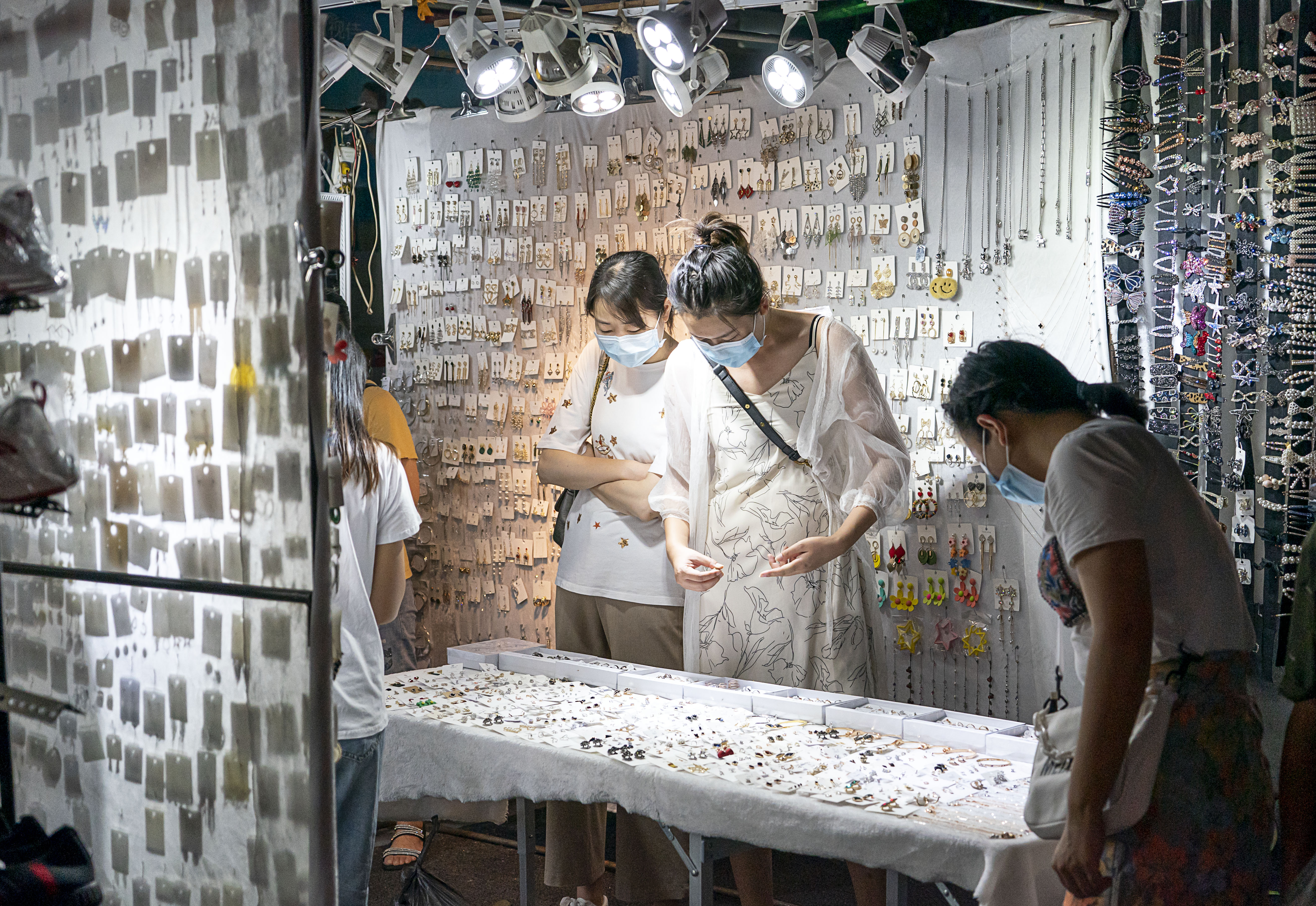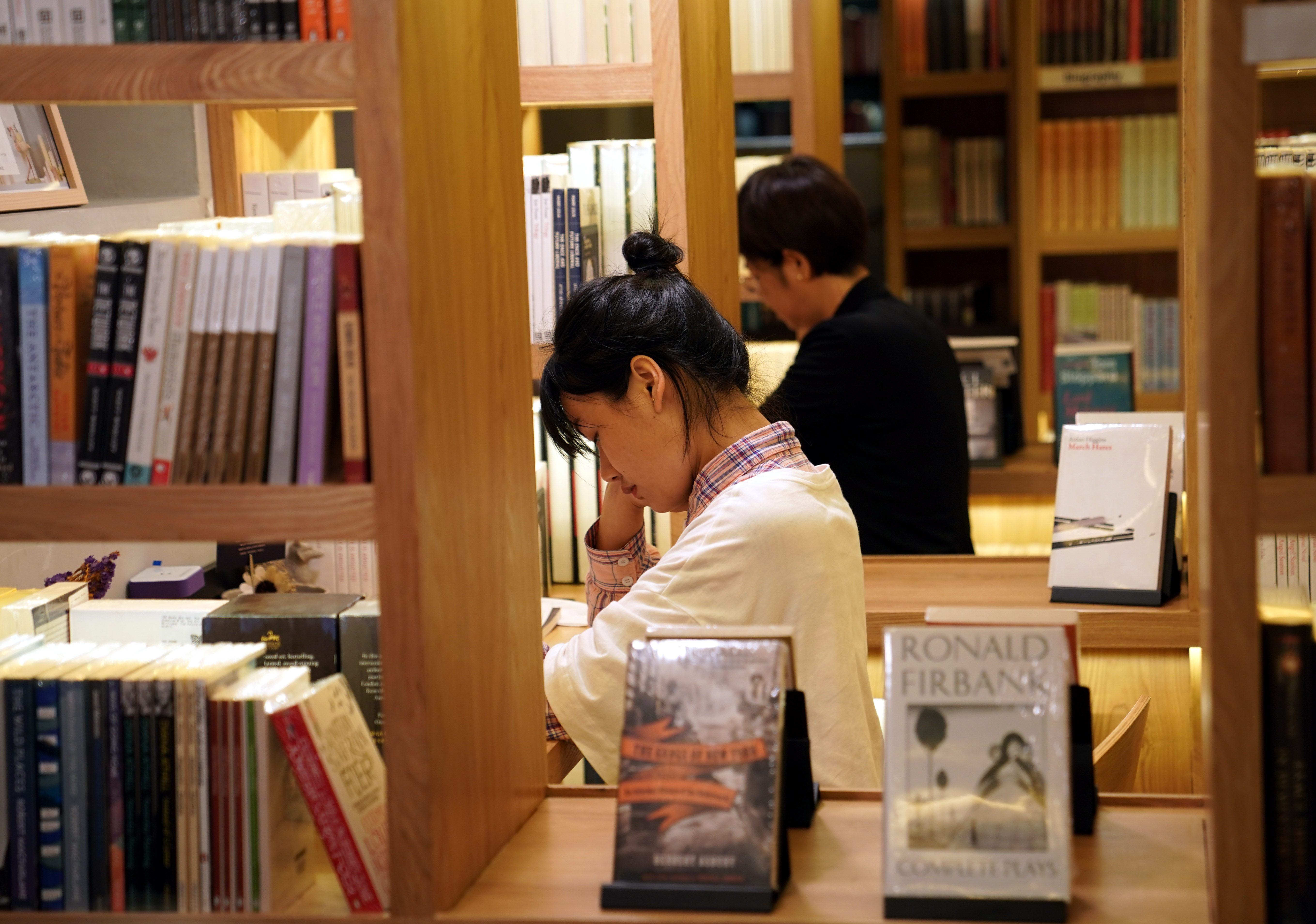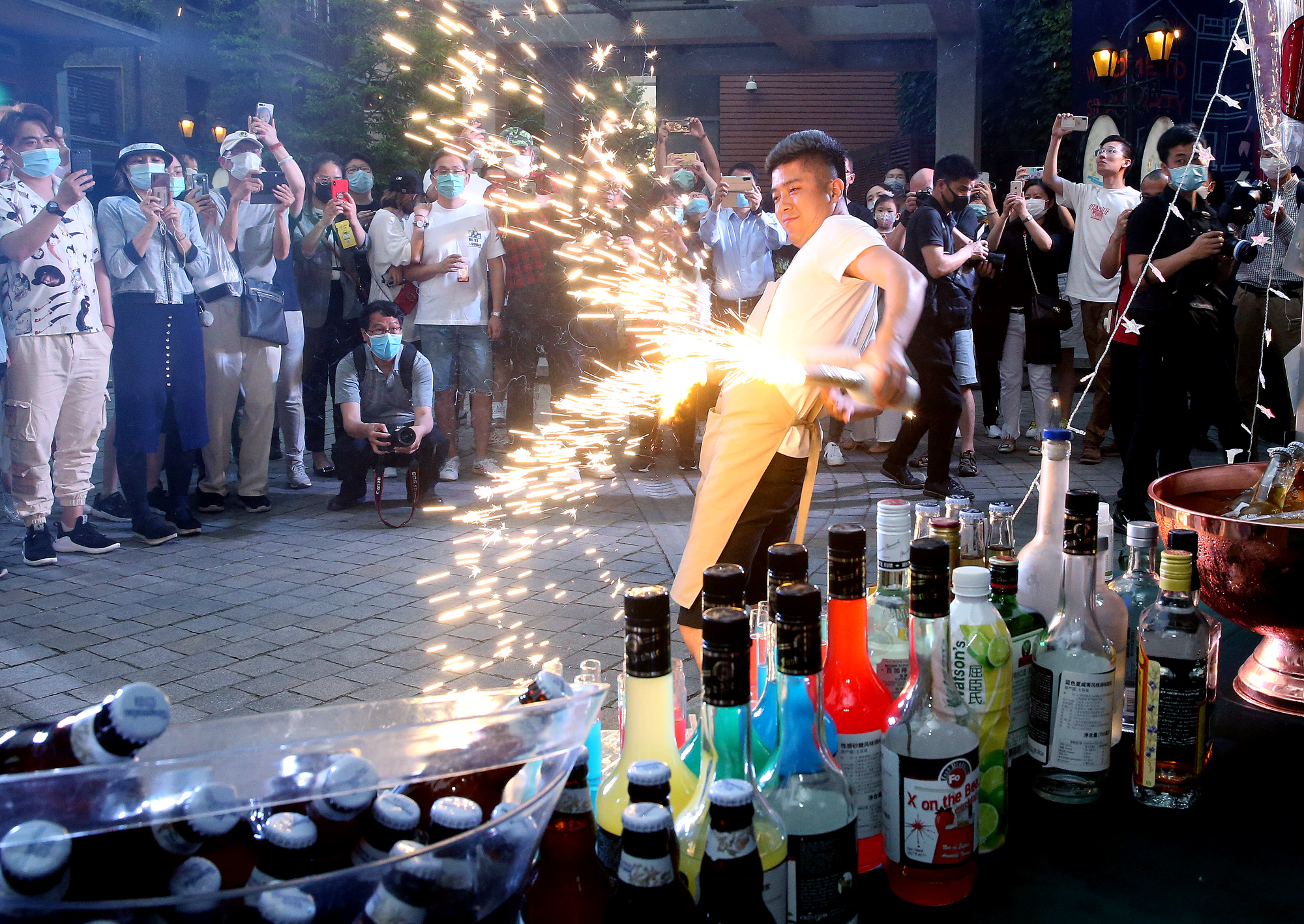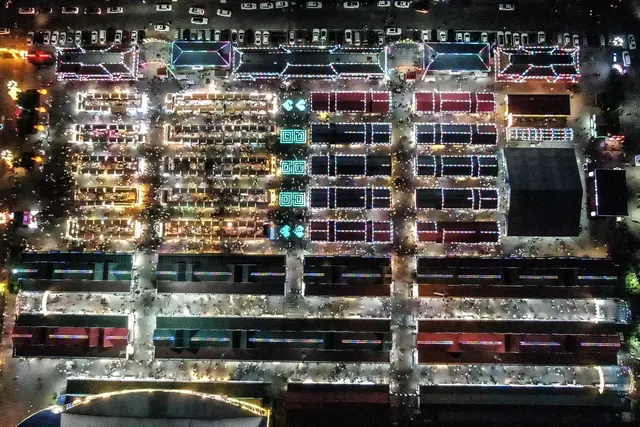**-- Night markets across China have resumed their usual bustle with renewed vigor and more flexible job opportunities. **
-- Gregarious Chinese outgoers enjoying a dazzling nightlife under regular epidemic prevention and control have contributed to boosting the night-time economy.
-- The potential of China's enormous domestic demand of its 1.4 billion people is the main driving force of growth in the post-COVID-19 economic recovery.
BEIJING, June 12 (Xinhua) -- It was not yet 4:00 p.m. when Niu Zhongxi started prepping around 1,500 of his best-selling grilled squid for the customers that would be showing up in the next few hours.
The 38-year-old former cook owns two barbecue stalls at the popular Xingshun International Tourist Night Market in Shenyang, capital of northeast China's Liaoning Province.
"The COVID-19 epidemic did have an impact on sales," Niu said. Fortunately, he was happy to see the customer flow picking up since the night market reopened in early April.
On the premise of implementing regular epidemic prevention and control measures, night markets in many places across China are recovering with renewed vigor, as well as more job opportunities.
Aerial photo taken on June 7, 2020 shows the Xingshun International Night Market in Shenyang, northeast China's Liaoning Province. (Xinhua/Pan Yulong)
Covering more than 50,000 square meters, the Xingshun night market currently has some 700 tenants that directly create around 3,000 jobs, according to Zhang Qiang, who oversees the management of the market.
"The potential of China's enormous domestic demand of its 1.4 billion people is the main driving force of growth in the post-COVID-19 economic recovery," Zhang said, highlighting the importance of night-time consumption.
The country will stabilize employment, promote income growth and ensure people's basic needs are met to encourage and enable consumer spending, as well as support the recovery and development of consumer services and promote the integration of online and offline consumption, said this year's government work report.
Night markets are undoubtedly at the forefront of sparking China's night-time economy.
In Wuhan, a city once hit hard by COVID-19 in central China's Hubei Province, the well-known night market on Baocheng Road has resumed its usual bustle, with citizens strolling around the stalls that stretch over 1.5 kilometers.
A variety of small commodities and home appliances have been placed on both sides of the road, and people could also get services like photo printing and screen protectors applied to their cellphones.
It is worth noting that some merchants were not street vending for a living. There were white-collar workers, college students, housewives and even children accompanied by their parents selling their used toys. Some also used online livestreaming platforms to promote their products.
The number of livestreaming chatrooms that were still open after midnight in Wuhan has increased by 239 percent in the past month from the average number in the first quarter, according to e-commerce platform Pinduoduo. Online customers had more visits and longer stay in those chatrooms at night than during the day.
"These are emerging trends since Wuhan began to recover from the epidemic," said Xiao Chong, a 28-year-old vendor and owner of a brick-and-mortar chain store. He filled his car trunk with imported personal care and beauty products from his store to sell on the street.
"I enjoy this new experience and soak myself in the long-lost lively atmosphere," Xiao said, who reported having met with 70 new customers in three days.

People visit a night market in Baocheng Road in Wuhan, central China's Hubei Province, June 1, 2020. (Xinhua/Xiong Qi)
Wuhan had tested nearly 9.9 million residents between May 14 and June 1 to screen for novel coronavirus infections, which brought the total number of nucleic acid testees in the city to 10.9 million.
The reopening of night markets in Wuhan sends a reassuring message that the heroic city that made great sacrifices during its lockdown is now safe, said the human resources and social security department of Hubei Province, adding that it will not only stimulate and expand consumption but support more people in flexible employment.
Data from WeChat Pay, one of China's major third-party payment platforms, show that Wuhan's night economy has seen significant recovery since June, with the number of consumer payments between 8:00 p.m. to 6:00 a.m. the next day increasing by 43 percent and 158 percent respectively compared with average figures in May and April.
To boost the city's night economy, Shanghai kicked off a night festival last weekend, with a number of bars, museums, bookstores, shopping malls and landmark commercial complexes joining the festival with extended business hours and more than 180 themed activities like night tours, shopping, dining and live shows.

People read books at one of stores of the Sinan Books extending operation hour to 12 p.m. on every Friday and Saturday from June 5 to June 30, in Shanghai, east China, June 5, 2020. (Xinhua/Liu Ying)
At the city's Sinan Mansions, a century-old redeveloped residential complex, a nightlife extravaganza that features outdoor bazaars, food stalls, art exhibitions and other cultural events is underway. The historic buildings received about 45,000 visitors on the first two days of the event.
"I signed up for the bazaar as soon as I heard the news," said Natasha Tarascon, M.D., founder of private cosmetics brand Doucea. The French national who has lived in Shanghai for more than seven years was amazed at the huge popularity of her hand cream and fragrance products.
Fan Meichen, vice manager of Sinan Mansions, said they have improved nightscape lighting and launched promotional campaigns on new media platforms for the carnival.
Late night bars in Shanghai have also recovered and posted better-than-expected sales in recent months since young people's pent-up demand for nightlife was reignited after government quarantine requirements were loosened.
"Bars play a key role in lighting up the night of the city after 10:30 p.m. when most businesses are closed," said Ye Dingyuan, executive chairman of the Shanghai Bar Association.

A bartender performs at a night fair of Sinan Mansions in Shanghai, east China, May 24, 2020. (Xinhua/Chen Fei)
Liu Min, deputy director of the Shanghai Municipal Commission of Commerce, said together with relevant departments, the commission will continue to boost night-time consumption with multiple measures such as improving supporting facilities, adding more temporary roadside parking spots and extending subway operation hours.
(Reporting by Ma Yunfei, Zhou Rui, Xu Yang, Yu Yetong, Yue Wenwan, Feng Guodong, Chu Yi. Video reporter: Sun Qing, Zhou Rui, Chen Jie, Ding Ding, Li Haiwei, Li Ang, Yang Jinxin, Li Lijing; video editor: Liu Yuting) ■
 简体中文
简体中文

